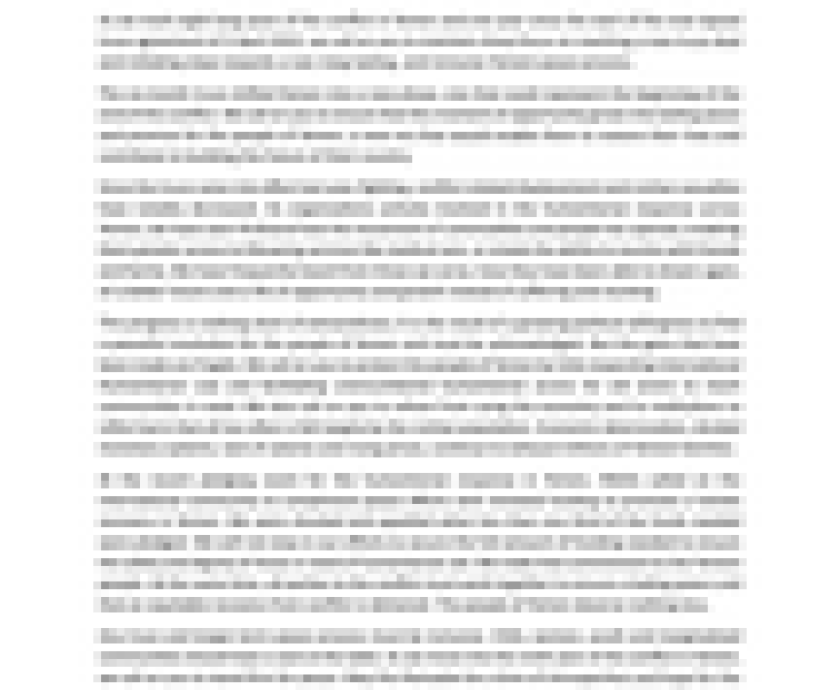Click to expand Image
Somali President Hassan Sheikh Mohamud speaks at his inauguration ceremony in Mogadishu, Somalia, June 9, 2022.
© 2022 AP Photo/Farah Abdi Warsameh
(Nairobi) Somalia’s president should withhold his signature from a bill that will expand the powers of the country’s repressive intelligence agency. The draft law, which the Senate passed on February 22, 2023, grants the National Security and Intelligence Agency (NISA) sweeping powers of arrest, detention, and surveillance with minimal independent oversight.
President Hassan Sheikh Mohamud has 21 days to sign the bill into law or return it to parliament with recommendations for amendment. He should immediately send the draft law back with a strong recommendation to revise its abusive provisions.
“Instead of rubber-stamping Somalia’s notorious intelligence agency’s extensive powers, the government should restrict its authority and improve accountability,” said Laetitia Bader, deputy Africa director at Human Rights Watch. “Somalia’s president should send the draft law back to parliament and call for it to be rigorously revised to address human rights concerns.”
The bill’s broad provisions could be used to justify the government’s repression of the political opposition and the media, Human Rights Watch said. NISA has arbitrarily detained perceived opponents and journalists, most recently the media rights advocate Abdalle Ahmed Mumin, and temporarily closed down media outlets.
The intelligence agency had been operating for several years with a vague legal status that facilitated arbitrary arrests, detention, and other abuses. Human Rights Watch has long called for the enactment of a rights-respecting national security law that defines the specific roles of national security agencies, in line with Somalia’s provisional constitution, and that bars the intelligence agency from carrying out arrests and detentions.
The draft law, which Somalia’s lower house of parliament passed on February 7, grants the agency broad powers of arrest, detention, search, seizure, and surveillance. It contains broad and vaguely defined definitions of the offenses over which the agency would have jurisdiction, including acts “that harm the security, reputation, independence, interests, and dignity of the Somali nation.” Such broad offenses, some already vaguely defined in the country’s outdated penal code, could be used to violate the rights to freedom of expression, association, and peaceful assembly, unduly restricting internationally protected activities by the political opposition, activists, and the media.
The draft law requires NISA to bring detainees before a magistrate within 48 hours of detention, in keeping with international legal standards, yet Human Rights Watch has found that NISA seldom does this, even though it is already required to do so under the criminal procedure code. The bill only grants detainees access to legal counsel and family visits after 48 hours in custody, yet the risk of torture and other custodial abuse is often greatest during the initial hours of detention. Furthermore, in undefined “emergency situations,” the bill allows NISA officials to arrest people without warrants.
Human Rights Watch has repeatedly documented NISA abuses, during arrests and detention, including prolonged detention without judicial review. During President Hassan Sheikh’s first term in office, from 2012 to 2017, NISA arbitrarily detained children and subjected them to coercive treatment and interrogations, denied them access to relatives and legal counsel, threatened them, and on occasion beat and tortured them.
The bill specifically bans NISA from operating “secret prisons” but allows the agency to operate detention facilities without specifying permissible locations. It does not spell out the role NISA plays in investigations and prosecutions in relation to prosecutors or which courts have jurisdiction over the offenses covered in the bill. The agency has repeatedly handed over nonmilitary suspects, including journalists, held for offenses related to the armed militant group al-Shabab to the country’s military court, which does not meet international fair trial standards.
The bill should confine NISA’s role to traditional intelligence activities, removing overlaps with police functions and powers, and specify that the agency not be involved in arresting and detaining suspects, Human Rights Watch said.
The bill contains other provisions that could be used to violate the rights to freedom of speech and the press. Language that broadly prohibits “anyone” from disseminating information about intelligence activities and agency members could be used to prosecute journalists, political opposition members, and human rights activists who publish information about government abuses. The surveillance powers, including the authority to monitor communications, internet, and postal communications, could also be used to violate people’s right to privacy and free expression.
The bill grants NISA, and its officials, the authority to conduct surveillance and to question, and detain “anyone who is deemed to be a threat to security, or involved in a criminal act,” and obliges all citizens and foreigners “to assist the agency in the national work.” It also grants the agency the authority to monitor and check “the work and staff of foreign agencies and companies that work in humanitarian/charity,” which risks hampering the critical work of aid agencies and nongovernmental organizations.
While the bill bans “torture and inhumane and degrading treatment,” it could still be misused to protect abusive NISA members from prosecution, or to provide the agency with legal cover if it decides not to cooperate in criminal proceedings. The NISA director general is granted discretionary powers to decide whether to allow arrests or investigations of NISA officials, which effectively provides them with immunity from prosecution, in violation of international law.
There are no provisions for individuals and communities to file complaints against NISA officials. The bill only allows for a subcommittee of the lower house of parliament to summon and question the Ministry of Internal Security about the agency’s work. The president should insist on the establishment of an independent oversight mechanism that would report to parliament, such as an inspector general or ombudsman, as stipulated in the country’s provisional constitution, Human Rights Watch said.
“Somalia’s international partners should raise concerns about the draft law’s deeply problematic provisions,” Bader said. “They should press the government to revamp the bill to ensure that it respects rights rather than facilitating violations and providing immunity to abusive intelligence officers.”



